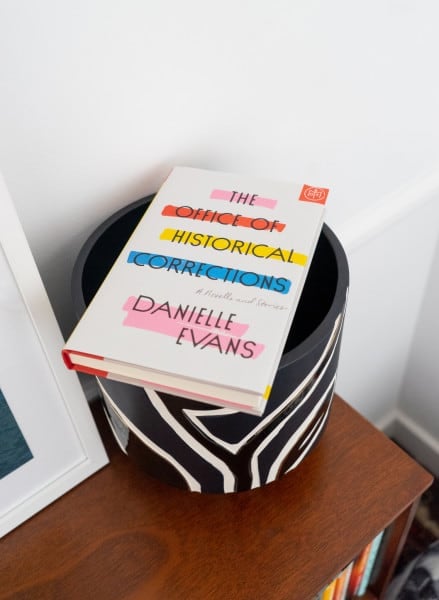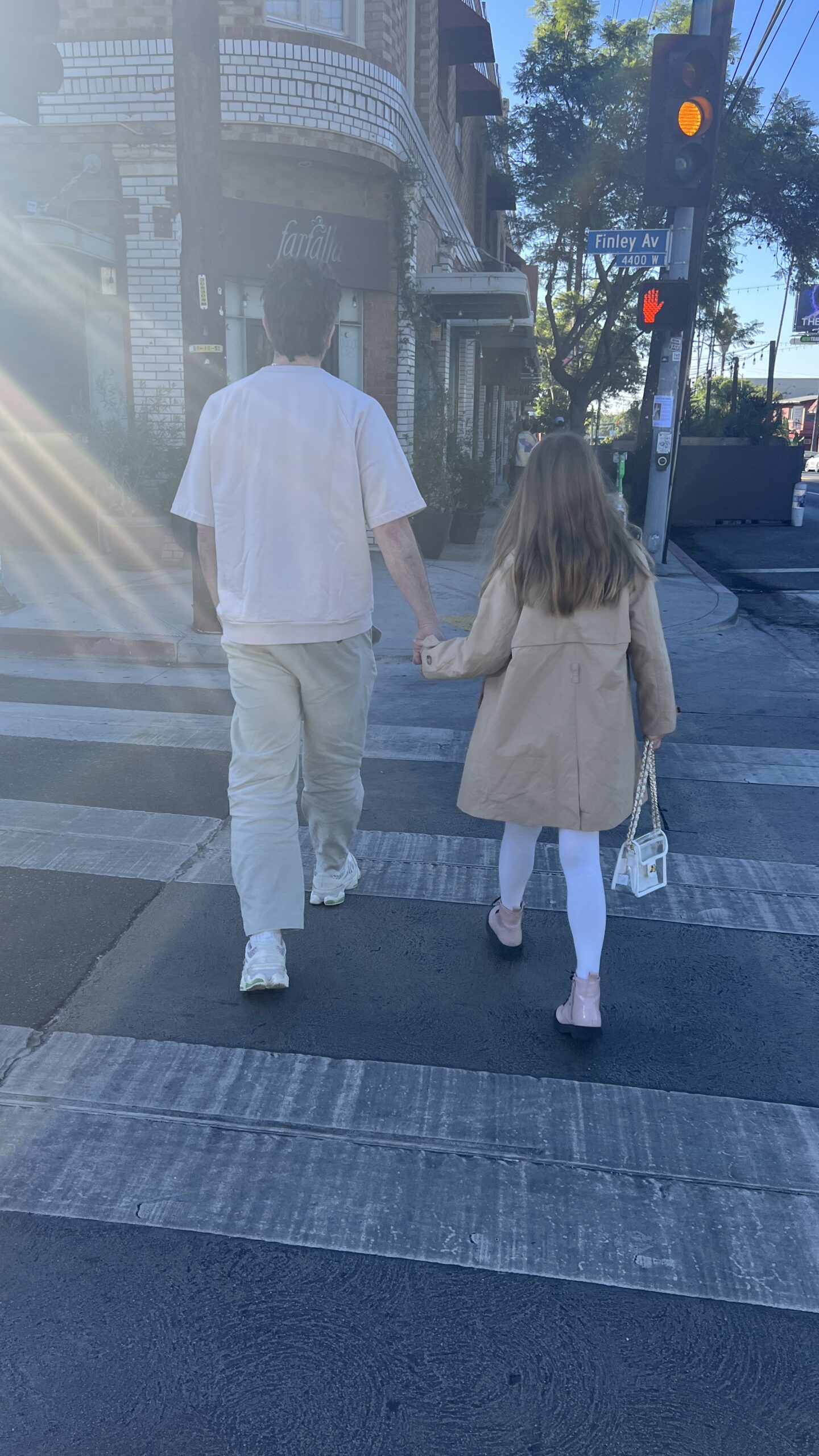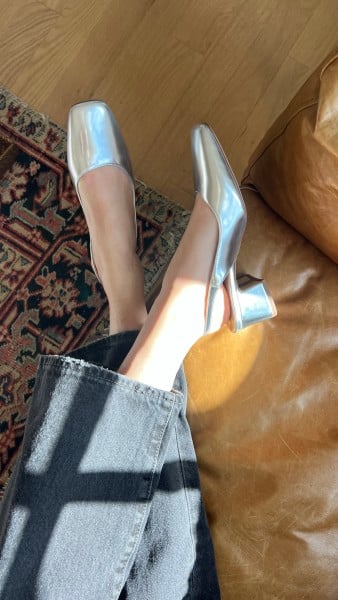
As someone who works in online retail and plans/executes/endures the madness that is Black Friday Week, fall is reliably the busiest time of year for me. Naturally, while my head is spinning with promo codes, product descriptions, and logistical details, my bibliophile habits suffer a little bit every October and November. I didn’t read enough at the end of last year to merit my usual monthly standalone posts about what I’ve been reading, so instead, I give you one big recap of everything I read last fall! Though I turned far fewer pages than I usually do, the quality of the books I chose was honestly pretty outstanding–it’s been quite a while since I hit a dud (well… just wait for my January books review, which includes an audiobook I’d consider a hard pass but shockingly has glowing reviews pretty much across the board). Enjoy!


I’m not usually a big audiobook gal, but I’ve recently realized how much I like them if they are memoirs read by the authors themselves. There’s something powerful about hearing someone tell their story in their own words, and Know My Name by Chanel Miller might be as good as it gets. It’s pretty long, but I listened on 1.4x speed during several long car rides and it was an ideal companion; a completely suitable replacement for the usual true crime podcasts that I typically reserve for road trips. Honest, gripping, and real, listening to Chanel reclaim ownership over her identity after being sexually assaulted by Brock Turner in 2015 and referred to in the media only as “Emily Doe” was quite a profound experience.
Synopsis: In January 2015, Chanel Miller and her younger sister went to a college fraternity party at Stanford. Unconscious and alone, Chanel was sexually assaulted by Brock Turner and left behind a dumpster. Referred to in the media only as “Emily Doe”, Chanel hid her victimhood even from those closest to her for several months after the assault, which she has no memory of. In Know My Name (published in 2019, nearly five years after her assault), Chanel reclaims her identity as she takes Brock Turner to court on sexual assault charges and tries to rebuild her life after such a deeply violating act.


Two audiobooks in a single month, who am I?! Libro.fm was kind enough to include me in their “book influencer” program for free ALCs (advanced listening copies) of a few select books each month, so I thought I’d give listening a real try. The Office of Historical Corrections–comprised of six short stories and one novella–caught my eye for November, and it didn’t disappoint. I went into it knowing basically nothing, but I was pleasantly surprised with a majority of the stories–so much so that I actually bought a paper copy before I had finished the book on audio and devoured it (again) during our winter break in December.
Thematically, the stories are united by a theme of “corrections” or trying to make things right, as evidenced by the book’s intriguing title. Most of Evans’ main characters are Black women in America experiencing grief, loss, love, uncertainty, or just the radical act of living their lives how they want inside the context of being Black in the United States. She writes them with such complexity that each story was so unique, some bizarre (Evans invents a fictional museum in the Midwest commemorating the sinking of the Titanic and a government agency that aims to help the American public separate fact from fiction), and all were incredibly memorable. Each story completely stands on its own, but my favorites were:
“Richard of York Gave Battle in Vain”: A wedding party dressed strictly in rainbow colors–even for the bachelorette party–reunites two women somewhat at odds with each other: the bride and one of the groom’s female friends, who escape to a waterpark on the day of the wedding after the groom suddenly disappears.
“The Office of Historical Corrections”: A Black professor gets a job at a government agency that issues “correction tickets” whenever they encounter misinformation about an event that has occurred at least one year ago. Enter an old friend (or rival?) she grew up with who joins the agency, and a correction that will wrap them up in a murder mystery that exists both in the past and present.
“When Lyssa was seven, her mother took her to see the movie where the mermaid wants legs, and when it ended, Lyssa shook her head and squinted at the prince and said, Why would she leave her family for that? which for years contributed to the prevailing belief that she was sentimental or softhearted, when in fact she just knew a bad trade when she saw one. The whole ocean for one man.” – Danielle Evans, The Office of Historical Corrections


You’ve heard both Leslie and me go on and on about this book in a few other posts, so let me just say that Leave The World Behind was my 10th favorite book I read in 2020 (out of 55 at the time of ranking) and I looooooved it. This one is extremely polarizing–definitely a love or hate situation–but you will have to decide for yourself which team you’re on. There are six main characters in this people-in-a-disaster-situation novel, and each represents a different archetype of how you might react given the circumstances of a global disaster (oooooor… a pandemic). Do you find shelter and refuse to leave, run for help, or make a plan on your own and do whatever it takes to survive? Read more about Leave The World Behind here and here.


I love YA, but I typically prefer to watch it on television rather than read a YA novel (hot take, I know). However, The Hate U Give is an exceptional story that is told equally well on paper as it is through cinema. I read the book first and then watched the movie (a must, whenever possible) and absolutely recommend both. The movie was missing a few key storylines from the book, but was well cast–starring Amandla Stenberg as Starr Carter, who you know from playing Rue in The Hunger Games–and actually seeing the acts of police brutality on screen was completely devastating and should be required watching for high schoolers. I bawled my eyes out during a scene where Starr stands up to use her voice, and this powerful story isn’t one I’ll forget any time soon.
Synopsis: 16 year-old Starr Carter is the lone witness to her friend Khalil’s murder by a white police officer who pulled their car over as they were leaving a party and mistook his hairbrush for a gun. The Hate U Give starts with Khalil’s murder, and then explores Starr’s life after his death as she grapples with racism in her close friend group and prepares to testify before a grand jury to put the police officer behind bars.
“Once upon a time there was a hazel-eyed boy with dimples. I called him Khalil. The world called him a thug. He lived, but not nearly long enough, and for the rest of my life I’ll remember how he died. Fairy tale? No. But I’m not giving up on a better ending.” – Angie Thomas, The Hate U Give


Wowza. Truthfully, I can’t really tell you anything about The Stone Sky because it’s the final book in a trilogy and full of spoilers. What I can tell you is that, having now finished the series (collectively my third favorite book of 2020), The Broken Earth trilogy is EPIC. Earth-shatteringly epic (literally). For anyone who likes fantasy, a boxed-set of this series would make an absolutely fantastic gift. With themes of racism, oppression, heroism, trans representation, and strong female characters who are trying to save the world, let’s ‘ship this series like it deserves. Read my review of The Fifth Season, the first book in the trilogy, here (and if you need more convincing, Leslie is on The Broken Earth train now too!)
“Well, some worlds are built on a fault line of pain, held up by nightmares. Don’t lament when those worlds fall. Rage that they were built doomed in the first place.” – N.K. Jemisin, The Stone Sky


I finished We Cast a Shadow about two weeks before we watched in horror as a mob of white supremacists stormed the Capitol building on January 6th. Less than a week into what was supposed to be the start of a better year, 2021 started off as a continuation of the dumpster fire that was 2020. I was in the middle of reading a classic work of dystopian fiction set in Los Angeles, Parable of the Sower by Octavia Butler, and had to put it down because it felt a little too close to home.
Since January 6th, I’ve been thinking a lot about this book: a satirical, dystopian cautionary tale about a future United States that seems more possible than ever. We Cast a Shadow is the debut novel from author Maurice Carlos Ruffin, whose next book, The Ones Who Don’t Say They Love You, is due out in August. This story starts off at a company party where the only three Black men in attendance are forced to dress up in costumes and humiliate themselves in front of their bosses and co-workers in a desperate attempt to be the last man standing–it’s a competition, and whichever men aren’t promoted after that night are out. From there, the author hurls us through the fictional world he’s built that looks like a disturbing, dystopian future of the United States–similar to what Margaret Atwood built for The Handmaid’s Tale 35 years ago, except this time it’s not women who are being oppressed.
The world of We Cast a Shadow is a satire–while I was reading, it felt so absurd and extreme that I was tempted to think, “That could never happen here.” But even before the attack on the Capitol, there was a nagging feeling that tugged at me as I read, almost like a whisper from Ruffin that says, “Yes, it could.” It’s a message that feels even more disturbing after witnessing the events of January 6th. This novel is a horrifying commentary on racism and anti-Blackness, but it’s also a story about a father’s love for his son; a father who will do anything to protect his son from the dangers and inequities of being Black in America. I was left with two questions: Is this the America we want? And what are we going to do to prevent it from becoming our reality?
Synopsis: In the not-so-distant future, our unnamed narrator is one of the only Black lawyers at a major law firm in an unnamed Southern U.S. city. Many BIPOC pay to go through a relatively new medical procedure called “demelanization” (which is exactly what you think it is) in the pursuit of a “better” life–for Black people, this America is even worse than the one we currently live in. Our narrator’s biracial son, Nigel, was born with a birthmark that has been slowly spreading over his entire body, making his skin appear darker over time. The narrator’s desperate mission is to finally get a promotion at work so he can pay for his son’s costly demelanization treatment–for now, painful skin bleaching cream will have to do. His wife, who is white, is firmly opposed to changing their son’s appearance in any way, and it creates major tension in their marriage when she finds out what he’s been up to. To what lengths will the narrator go to protect his son from this version of America, and how much will he lose in the process?
“I have a natural aversion to numbers and statistics, as they can be manipulated by any reactionary with an agenda. But that doesn’t change the objective fact that prospects for African Americans have devolved even since my grandparents’ time. Black women make thirty cents for every dollar a white man does, and 90 percent of black moms are single mothers. Unemployment among black males is the norm, not the exception, and nine out of ten brothers have done time. And virtually none of us black guys and dolls can vote since felons and the children of felons need a voucher from an upstanding citizen to earn a voting pass (Jojo was mine.) None of that even takes into account the fact that every black person is de facto enemy of the state. They used to call bringing every able-bodied black male to jail for questioning racial profiling. Now it’s called excellent police work. Did I mention that blacks in most major cities live in fenced-in ghettos just like the Tiko? There may be beauty in my blackness and dignity in the struggle of my people, but I won’t allow my son to live a life of diminished possibility. I see a constellation of opportunity that those of my ilk rarely travel to. I see my Nigel at the center of those stars.” – Maurice Carlos Ruffin, We Cast a Shadow


Have you been waiting for me to review a book that is really fun and exciting? Well, this one is for you! I promise you don’t have to be a sci-fi lover to enjoy this space adventure with a lovable ensemble cast of characters. It feels so much like a future mini-series on Hulu or Netflix that you’ll probably be casting it in your head as you read. On top of all the exciting low-stakes drama, it’s so refreshing to read a book where human ideas are questioned as strange, interspecies relationships are explored, gender is not rigid, and preferred pronouns are used and respected. I had a genuine blast reading this book and hope to find more like it soon! It does have a few sequels, but they follow a different cast of characters so I’m not yet sold on whether I’ll pick them up or not.
Synopsis: It’s the future, and humans have left Earth. The entire universe is mostly at peace, and many species live in harmony together as members of an entity called the Galactic Commons. The human race has somewhat recently become a member of the GC, and we are definitely not the most important species in the galaxy. One human captains the crew of the Wayfarer: a tunneling ship that makes a living for its crew members by punching holes in space, creating wormholes for people of the GC to travel by. His crew consists of humans and several other species, each person with an essential part to play. Rosemary, a young human from Mars with a secret she wants to keep hidden, joins the Wayfarer as its clerk just before it embarks on a very important long-haul mission. But are they unknowingly headed into danger? What will go wrong before they reach the small, angry planet?


I thought this crime thriller was absolutely, perfectly fine. When I picked it up it was pitched as thriller/suspense, but I think I’d call it more of a slow-burn detective novel. There’s a large audience out there who would absolutely love this, and for a debut, I think it’s promising. Winter Counts has flawed but very real characters, a stunning setting on the Rosebud Reservation in South Dakota (the setting honestly outshines everything else), and a slow, carefully built plot that explodes into an action-packed ending that is perfectly fit for a movie.
The author lives on the reservation he writes about, and his care and attention to the setting of his book really shows. He expertly illustrates many of the hardships faced by Indigenous peoples–his main character, Virgil, is called a “half-breed bastard” in the opening pages. Where the book lost me a little is with its lack of female characters. There is only one woman who is a major part of the story, and she’s more or less cast in “the girlfriend” role that made me like this book a little less than I would have otherwise.
Synopsis: Virgil Wounded Horse is a member of Sicangu Lakota Nation, and he makes his living being paid to take care of certain things on the “rez” that the police won’t (and often can’t) assist with. After his 14 year-old nephew almost dies from a heroin overdose, Virgil is determined to rid the reservation of drugs, keep his nephew out of harm’s way (or prison), and get his ex-girlfriend back. It was such a treat to read and learn about the traditions of the Sicangu Lakota people, and several scenes are so striking they are still fresh in my memory.
“I understood why he wouldn’t go to the rez police. By federal law, tribal police couldn’t prosecute any felony crimes that happened on the rez. Jerome had told me that this law was because of the murder way back in the 1880s of Chief Spotted Tail. The killer had been banished, but not jailed. He said the wasicus were so upset by the native way of justice that they passed a law taking away our right to punish our own people. So tribal courts could only charge misdemeanor crimes–little stuff, like shoplifting or disorderly conduct. The tribal police had to refer all felonies to the federal investigators. But the feds usually declined to prosecute most of them. They’d follow through on some, usually high-profile cases or violent crimes. But standard sex assault cases, thefts, assault and battery–these crimes were usually ignored. And the bad men knew this. It was open season for raping any Native woman, so long as the rape occurred on Indian land. When the legal system broke down like this, people came to me. For a few hundred bucks they’d get some measure of revenge. My contribution to the justice system.” – David Heska Wanbli Weiden, Winter Counts
Stay tuned for reviews of two books I’ve read so far in January and loved: The Invisible Life of Addie Larue and Piranesi. What are you reading this month?





